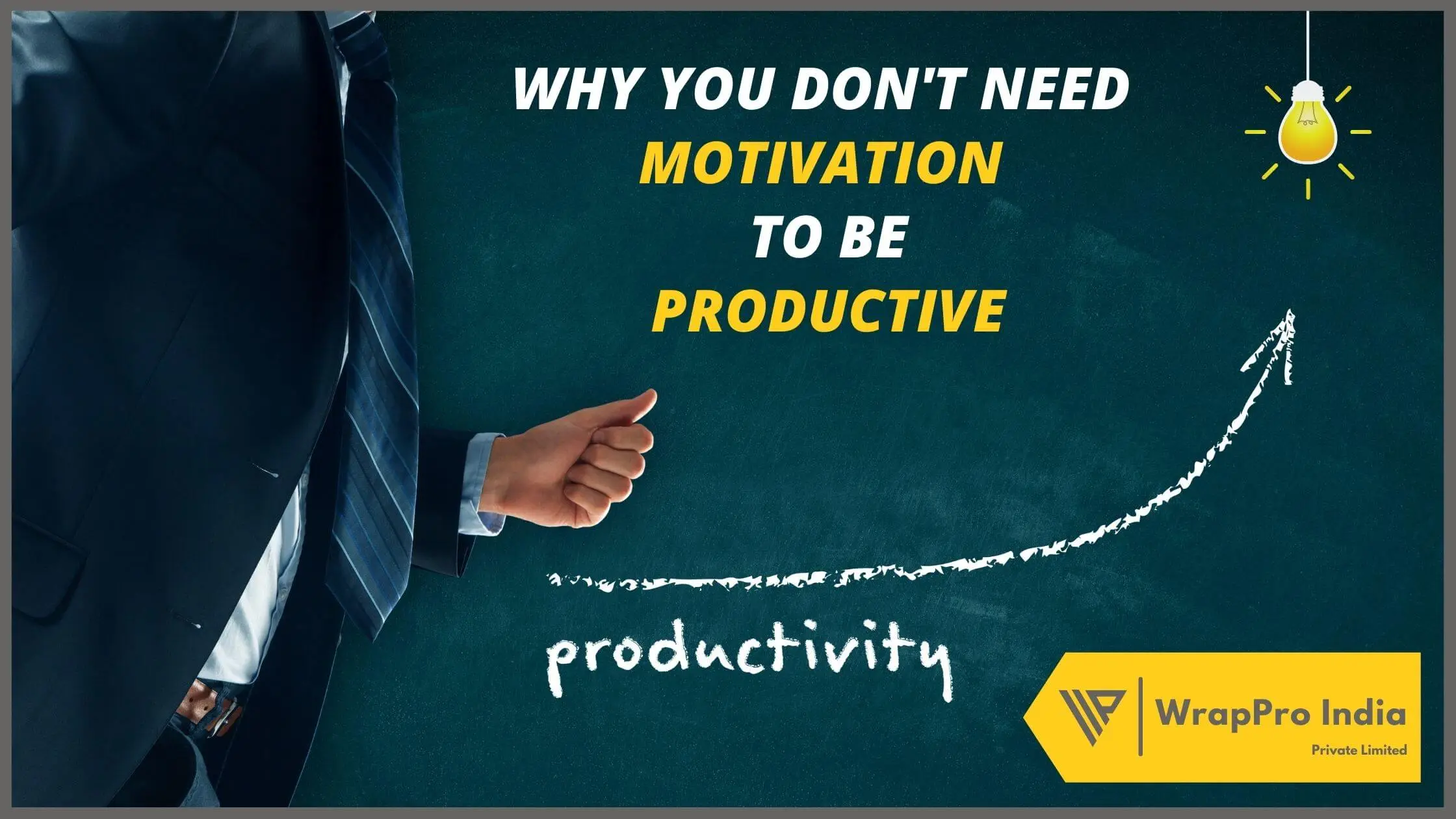
Why You Don't Need Motivation To Be Productive
Each one of us aspires to achieve excellence in our work-life, efficiently completing tasks on time. Undoubtedly, motivation plays a crucial role in this journey, providing the drive that influences our needs, desires, and actions. However, motivation can be fleeting; it may surge at times, propelling us to accomplish tasks and achieve our goals, only to vanish, leaving us without the drive to do anything at all. This fluctuation in motivation is a common drawback, reminiscent of our ever-changing emotions.
The question then arises, do we truly need motivation to be productive?
The answer is both Yes and No.
Yes, because motivation is what propels us into action and gets us started on our tasks. No, because relying solely on motivation to be productive is not essential.
So, how can we balance the equation when motivation is lacking?
Let us explore three habits and strategies that can help us become productive even in the absence of strong motivation.
1) Select Your Areas of Focus: Prioritizing tasks and identifying key areas of focus is crucial. By discerning which tasks truly deserve our energy and attention, we can effectively ignore distractions.
For instance, let’s assume our work priorities for the year are;
– Forming a talented work team,
– Creating quality presentations,
– & Providing excellent service to our clients.
Then we can align all our efforts with these themes. If a project or an opportunity doesn’t fit into one of these three categories, then we know that we need to avoid it. We can make real progress by ignoring distractions. It also allows us to productively shuffle our focus if we are feeling less motivated to perform any one of the given tasks.
2) Set a Routine & Stick to It: Relying solely on motivation can be unreliable, as it may not always align with our work schedule. Implementing a routine can help overcome this hurdle. Routines, driven by self-discipline, enable us to engage in tasks regardless of our current interest level. Following a well-defined routine ensures that we consistently move forward, even when motivation is not at its peak.
3) Delegate What You Cannot Prioritize: To maintain focus on top priorities, consider delegating tasks that can be handled by others. By reallocating time, focus, or energy to high-level activities that only you can undertake, you can minimize distractions and concentrate on the most critical aspects of your work.
By incorporating these habits and strategies into your work-life, you can achieve productivity beyond mere reliance on motivation. Embracing a proactive approach will enable you to make consistent progress and deliver maximum outputs.
“Successful people are simply those with successful habits.” – Brian Tracy
If you decide to implement these methods, we would love to hear about your experiences and the benefits you gain from them. Your success would truly brighten our day.

